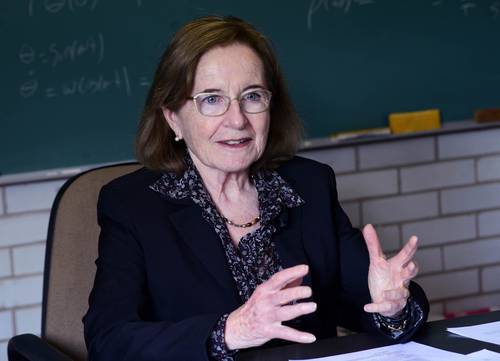Quantum mechanics is a vital field of study within physics, yet many physicists choose to ignore its foundational principles. According to specialist Ana María Cetto Kramis, who spoke at a conference organized by the National Council of Humanities, Sciences and Technologies (Conahcyt), physicists often avoid exploring the foundations of quantum mechanics because they fear it will distract them from their calculations, experiments, and practical applications of the theory. They also fear facing consequences such as being punished for delving too deeply into the theories.
The theory of quantum mechanics deals with atomic and subatomic systems and their interactions with electromagnetic radiation and other forces. It observes all forms of energy that are released in discrete units or packages known as quanta. Notable physicists such as Werner Karl Heisenberg and Erwin Rudolf Josef Alexander Schrödinger made significant contributions to quantum mechanics by formulating new models and theories that laid the foundation for understanding the behavior of elementary particles and atoms.
Quantum mechanics has proven its predictive capacity and has been applied in various fields such as information technology, cryptography, and chemistry. However, it is considered an incomplete theory since it only describes phenomena without fully understanding their causes. Some of the mysteries surrounding quantum mechanics include atomic stability, wave-particle duality, nonlocality, and the collapse of PSI. These aspects challenge our understanding of the essence of the theory and its application in real-world scenarios.
Niels Bohr’s postulates shed light on atomic stability by proposing that electrons occupy quantized orbits and do not radiate while jumping instantly between orbits. These postulates raise questions about the behavior of electrons and their interactions within atomic structures. Resolving these mysteries is crucial in completing the theory and advancing scientific knowledge.
Specialists like Ana María Cetto Kramis have dedicated years to investigating the foundational aspects of quantum mechanics in search of a complete theory. By characterizing stochastic processes within quantum mechanics, researchers aim to bridge gaps in our understanding of this complex yet fundamental area of physics.
In conclusion, while quantum mechanics is essential to our understanding of physics, many physicists still choose to ignore its foundational principles due to fears about consequences such as being punished for delving too deeply into theories or facing halts in publishing. However, specialists like Ana María Cetto Kramis continue to investigate these mysteries with dedication towards completing this complex yet fundamental area


